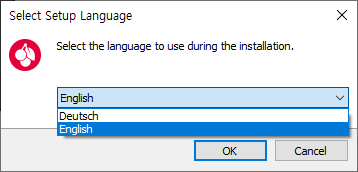'잡동사니'에 해당되는 글 14039건
- 2026.01.03 새차 첫 장거리 2
- 2026.01.02 모니터 암 설치 완료 4
- 2026.01.02 체리 키보드 alt-f4가 안되네?
- 2026.01.02 둠 이터널.. 접어야 하나? ㅠㅠ
- 2026.01.01 새해는 장보기
- 2025.12.31 체리 키보드 mx 3.0s rgb 적축 지름
- 2025.12.31 모니터 암/ 베사 확장 브라켓
- 2025.12.30 오랫만에...? 외식!
- 2025.12.29 ubuntu 22.04 bgr 패널 대응
- 2025.12.29 개같지 않게 나온 개사진
높이 조절하면 좌우로 이동되서 몇번 옮기고
200x200 브라켓 연결한다고 몇번 뗐다 붙이고
어우.. 개고생..
솔찍히 고생한 것이 비해서는 그리 뿌듯함이 안 느껴진다.
이전보다 더 앞으로 튀어나와버려서 뒤로가서 게임을 해야 함
그래도 유튭보기에는 딱이네 ㅋㅋ
'개소리 왈왈 > 컴퓨터' 카테고리의 다른 글
| dp to usb-c... ? (0) | 2026.02.08 |
|---|---|
| 오늘의 줍줍 (0) | 2026.01.11 |
| 체리 키보드 alt-f4가 안되네? (0) | 2026.01.02 |
| 체리 키보드 mx 3.0s rgb 적축 지름 (0) | 2025.12.31 |
| 모니터 암/ 베사 확장 브라켓 (0) | 2025.12.31 |
fnlock
ctrl-fn
[링크 : https://quasarzone.com/bbs/qf_input/views/289148]
체리 키랑 fn 키가 왜 빨갛게 들어왔나 했더니 이런 이유였나.
그런데 어쩌다가 ctrl, fn 조합이 눌린거지?


[링크 : https://www.cherry.de/ko-kr/product/mx-board-3-0s/downloads]
그나저나 체리키 활성화 시키고 누르니까
win + r 눌러서 아래 명령을 실행하고 있네 ㅋㅋㅋ
| CMD /C "IF NOT EXIST %APPDATA%/CHERRYAST/CHERRY.LNK (START HTTP://R.CHERRY.CN/1/C) ELSE START %APPDATA%/CHERRYAST/CHERRY.LNK" |
'개소리 왈왈 > 컴퓨터' 카테고리의 다른 글
| 오늘의 줍줍 (0) | 2026.01.11 |
|---|---|
| 모니터 암 설치 완료 (4) | 2026.01.02 |
| 체리 키보드 mx 3.0s rgb 적축 지름 (0) | 2025.12.31 |
| 모니터 암/ 베사 확장 브라켓 (0) | 2025.12.31 |
| 이노스 tv 설정방법 (저지연모드) (0) | 2025.12.16 |
이제 피지컬의 한계가 느껴진다 ㅠㅠ
더 센 무기가 필요해!!!
자꾸 bfg 탄약이 보이는거 보면 이걸 쓰라는거 같긴한데.. 어후...

내가 하다 접으면 얘가 50% 지분 차지하는거임

지금하는게 미션 9 이고
13까지 있나 보네 후.. 얼마나 더 빡세질거냐 ㅠㅠ

'게임 > doom' 카테고리의 다른 글
| 둠 이터널 - 네크라볼 / 네크라볼 파트 2 (0) | 2026.01.17 |
|---|---|
| 둠 이터널 타라스 나바드 끝 (0) | 2026.01.10 |
| 둠 이터널 - 수직 동기화 문제 -_- (2) | 2025.12.20 |
| 둠 이터널 - 추종자 기지 공략 (0) | 2025.12.16 |
| doom eternal을 위해 베데스다 가입 (0) | 2025.11.23 |



[링크 : https://www.cherry.de/ko-kr/제품/소프트웨어-및-서비스/cherry-utility]
+
아놔 그래서 옆에 어떻게 빼는데용 ㅠㅠㅠㅠㅠㅠ
[링크 : https://m.blog.naver.com/keun17xm/223203453311]
[링크 : https://quasarzone.com/bbs/qc_qsz/views/1250483]
+ 2026.01.05
음.. 하번 다시 시도?
'개소리 왈왈 > 컴퓨터' 카테고리의 다른 글
| 모니터 암 설치 완료 (4) | 2026.01.02 |
|---|---|
| 체리 키보드 alt-f4가 안되네? (0) | 2026.01.02 |
| 모니터 암/ 베사 확장 브라켓 (0) | 2025.12.31 |
| 이노스 tv 설정방법 (저지연모드) (0) | 2025.12.16 |
| 데탑수리 - 파워교체 (0) | 2025.12.16 |
아 몰라 지르고 행복해질래!!
집에 모니터가 43인치 인데 200x200 이라서 브라켓이 필요하고
브라켓도 무게가 나가는데다가 모니터가 7kg 라서
노스바유 같은 보급형(?)은 8kg~9kg 한계라서 불안불안하다 보니
고중량으로 일단 질러봄.
그러면.. 모니터 살짝 올리고 하단에 사운드 바 설치하면 되려나?
고중량 암
[링크 : https://www.camelmountmall.com/goods/goods_view.php?goodsNo=1000000281]
베사 브라켓 (100x100 -> 200x200, 200x100)
'개소리 왈왈 > 컴퓨터' 카테고리의 다른 글
| 체리 키보드 alt-f4가 안되네? (0) | 2026.01.02 |
|---|---|
| 체리 키보드 mx 3.0s rgb 적축 지름 (0) | 2025.12.31 |
| 이노스 tv 설정방법 (저지연모드) (0) | 2025.12.16 |
| 데탑수리 - 파워교체 (0) | 2025.12.16 |
| 노트북 분해, 약간의 개조 (0) | 2025.12.15 |
dconf 설치하고 바꾸어도 먼가 달라지는 느낌은 없다. 크롬은 자체적으로 렌더를 해서 그런가..


[링크 : https://askubuntu.com/questions/98531/how-can-i-change-font-rendering-to-sub-pixel-bgr-ordering]
일단 리부팅 하고 나서 보니 먼가 달라진 느낌
요건 rgb 셋팅일때

요건 bgr로 바꾸고 리부팅 했을때.
확실히 먼가 눈에 거슬리는 격자들이 많이 사라진 느낌이다.

gnome-tweak 에서 글꼴을 보면 힌팅/안티알리아싱이 있는데
얘도 gnome-terminal이나 먹히지 크롬은 영향을 주지 않는다.

힌팅이 적당히~완전히 에서는 콜론이나 점이 너무 작아져서, 개인적으로는 조금 정도가 나은듯 하다.
없음 / 없음

조금 / 없음

완전히 / 없음

서브픽셀은 솔찍히 눈으로는 티가 안나서 모르겠다.
없음 / 서브픽셀(LCD 화면용)

없음 / 표준(흑백)

'Linux > Ubuntu' 카테고리의 다른 글
| clamav (0) | 2025.12.22 |
|---|---|
| evince (리눅스 pdf 뷰어) 네비게이션 (0) | 2025.12.11 |
| ubuntu 22.04 bgr subpixel 대응 찾기 실패 (0) | 2025.11.25 |
| ts - moreutils (0) | 2025.09.26 |
| 기본 터미널 변경하기 (0) | 2025.09.22 |

정체불명의 증명사진 스타일 ㅋㅋ

'개소리 왈왈 > 사진과 수다' 카테고리의 다른 글
| 개기월식 (0) | 2026.03.03 |
|---|---|
| 하루 늦은 남산 사진 (0) | 2025.10.09 |
| 눈 @.@ (0) | 2024.11.27 |
| 부웨에에에에엑~ (0) | 2024.10.16 |
| 캐논 카메라 sd 카드 쓰기 잠금 문제 (0) | 2024.06.20 |

